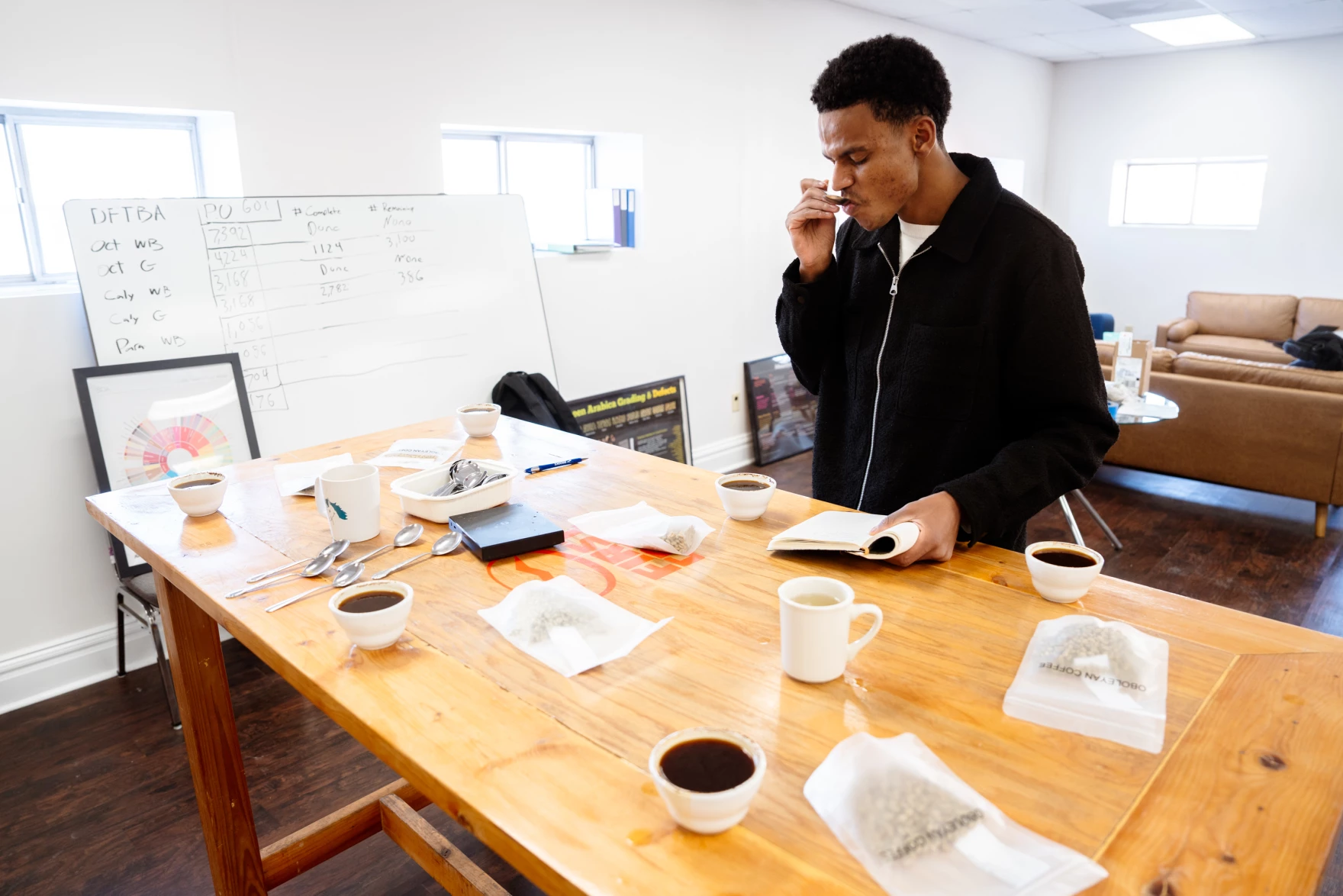Firaol Ahmed is particular about his coffee.
It must be well sourced. No cream. No sugar. And definitely no Starbucks.
“If you have bad coffee, the best thing you can do is roast it dark,” Ahmed said. “No one will be able to tell if it’s bad coffee then. If you have good coffee, the best thing you can do is roast it light because all of the complexity in the flavor of the coffee shows when it’s a light roast.”
The St. Louis University senior is a coffee connoisseur with an impeccable sense of taste and smell. Twice a week, he comes into First Crack, a roasting facility in St. Louis, to “cup” high-quality Ethiopian coffee.
Cupping is the multiday, multistep process of tasting and evaluating coffee that starts with light roasting several batches of green coffee beans 48 hours in advance.
“We’re tasting these coffees, giving them a score, giving them a tasting note that we find in a coffee so that it’s easier for our customers here to make a decision in purchasing these coffees from producers in Ethiopia,” Ahmed said.
He weighs each sample of beans on a food scale, grinds them separately and pours each sample into a cup. Next he uses his most important tool — his nose. He smells the fresh grounds. Then he steeps the samples in hot water to brew.
He smells it again. This time he’s searching for that signature fruity smell that’s common for Ethiopian coffee. The coffee smells and tastes this way because the coffee trees are grown at elevations as high as 7,000 feet.


No Comment Found.